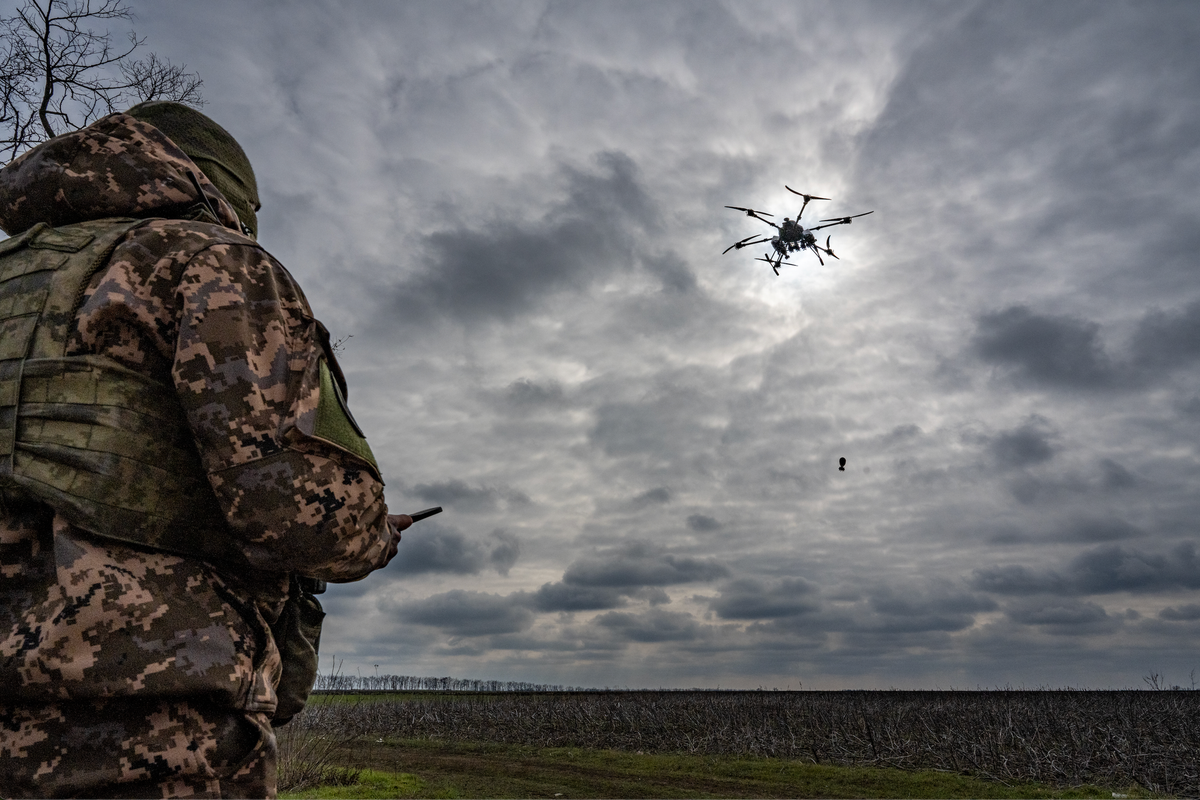CIPHER BRIEF REPORTING — Turkish President Recep Tayyip Erdogan is signaling fresh optimism that his country could once again acquire U.S.-made F-35 fighter jets—an unexpected twist in a long-running defense dispute that once fractured NATO unity.
After meeting with former President Donald Trump at the NATO Summit in The Hague earlier this summer, Erdogan told reporters that “technical-level talks” between Turkish and U.S. officials were already underway.
“We discussed the F-35 issue. We made payments of $1.3 to $1.4 billion for the jets, and we saw that Mr. Trump was well-intentioned about delivering them,” Erdogan said. Notably, he added that Turkey’s Russian-made S-400 air defense system—at the center of the years-long impasse—“did not come up” during the talks.
That detail matters. In 2019, the United States formally expelled Turkey from the multinational F-35 Joint Strike Fighter program, citing the S-400 purchase as a direct threat to the aircraft’s stealth and intelligence safeguards. At the time, the decision was widely seen as a sharp rebuke to a NATO ally drifting closer to Moscow.
With a shifting geopolitical landscape and renewed U.S.-Turkey dialogue, the question returns: should Turkey be allowed back into the F-35 program?
Many national security experts argue that the risks of reintegration far outweigh the benefits—both technically and strategically.
“Turkey made its choice despite repeated warnings, advice, and pressure from allies. It went into this with eyes wide open and decided in 2019 to proceed with the S-400 missile defense system,” Sinan Ciddi, Associate Professor of Security Studies at the Marine Corps University and Senior Fellow for the Foundation for Defense of Democracies, tells The Cipher Brief. “Given that, there’s no real upside to letting Turkey back into the F-35 program. The associated dangers are significant.”
Others contend that the potential upsides are worth considering.
“Bringing Turkey back into the F-35 program could strengthen NATO’s southern flank, where Turkey’s strategic position bordering Syria, Iran, and Russia matters. Its air force, stuck with aging F-16s, would gain fifth-generation stealth with the F-35, boosting NATO interoperability and deterrence against adversaries like China and Russia,” John Thomas, Managing Director of strategic advocacy firm, Nestpoint Associates, tells The Cipher Brief. “The deal could allow Turkish firms to make parts which could lower costs, saving US taxpayers billions.”
Ankara had invested approximately $1.4 billion into the project before its removal. Turkish defense contractors played a key role in manufacturing over 900 parts for the aircraft, many of which had to be relocated to U.S. and European facilities at considerable cost and logistical strain.
Yet even among advocates, most agree that reentry would need to be conditional and tightly controlled.
There is also a compelling strategic case. Geographically, Turkey straddles Europe, Asia, and the Middle East, offering air base access near conflict zones from Syria to the Caucasus and eastern Mediterranean.
Beyond hardware and geography, some view Turkey’s reintegration as a means to draw Ankara back from its increasingly independent defense path and closer to the West. Erdogan has hedged against U.S. sanctions by ramping up cooperation with Russia and accelerating development of a homegrown fifth-generation fighter, the KAAN, which completed its first test flight in early 2024.
The Cipher Brief Threat Conference is happening October 19-22 in Sea Island, GA. The world's leading minds on national security from both the public and private sectors will be there. Can you afford to miss out? Apply for your seat at the table today.
The Risks That Haven’t Gone Away
Still, the concerns that led to Turkey’s original expulsion remain unresolved. Chief among them is the continued presence of the Russian S-400 system on Turkish soil.
“The S-400’s radars are a dealbreaker,” Thomas asserted. “Russian systems could collect data on the F-35’s stealth, risking leaks to Moscow, endangering American pilots and allies like Israel.”
Washington officials have repeatedly warned that operating both the S-400 and F-35s in the same environment poses an unacceptable risk to sensitive data and stealth technology.
“To restore trust, Turkey must fully decommission its S-400s—dismantling key components or transferring them to U.S. control at Incirlik. Legal guarantees, like a binding commitment not to procure Russian systems again, need to be non-negotiable,” Thomas continued.
While technical safeguards and legal commitments may help mitigate security risks, others caution that deeper strategic questions remain unresolved.
Jennifer Kavanagh, senior fellow and director of military analysis at Defense Priorities, tells The Cipher Brief that there are several questions Washington officials need to ask.
“How likely is it that Turkey would fight alongside the U.S. in a war or crisis with F-35s should they regain access to the program? In the past, they have even denied the U.S. even the ability to operate from Turkish bases, so there are reasons to be skeptical,” she said.
From her purview, Ankara should “give the S-400 system back to Russia if they are serious about reentering the F-35 program.”
“This is probably not feasible. Decommissioning the system might be sufficient, but in that case, Turkey’s access to the F-35’s classified technology should be limited,” Kavanagh said.
Although Turkish officials have hinted at a possible deactivation or sale of the S-400, no concrete steps have been taken.
Sign up for the Cyber Initiatives Group Sunday newsletter, delivering expert-level insights on the cyber and tech stories of the day – directly to your inbox. Sign up for the CIG newsletter today.
Congressional Red Lines and Executive Authority
Reintegrating Turkey wouldn’t just be a military or diplomatic decision—it would require navigating deep skepticism on Capitol Hill. Under the Countering America’s Adversaries Through Sanctions Act (CAATSA), the U.S. imposed sanctions on Turkey’s defense procurement agency in 2020. Lifting those sanctions would likely require congressional approval, and opposition remains strong.
Senator Jim Risch, a senior Republican on the Senate Foreign Relations Committee, has repeatedly stated that Turkey should not receive the F-35 as long as the S-400 is operational.
Moreover, in July, a bipartisan letter began circulating in the House, authored by Representatives Chris Pappas (D-NH), Gus Bilirakis (R-FL), Nicole Malliotakis (R-NY), and Dina Titus (D-NV). The lawmakers urged the administration to block any efforts they say would violate U.S. law and compromise national security policy. The State Department responded to the letter, saying: “We have expressed our displeasure with Ankara's acquisition of the S-400 system and have made clear the steps that should be taken as part of our ongoing assessment of the implementation of CAATSA sanctions.”
Ciddi pointed out, however, that there are ways to skirt Congress.
“The National Defense Authorization Act includes explicit language: as long as Turkey maintains the S-400 on its soil, it cannot receive the F-35. That’s been the case since 2019,” he explained. “Could that be bypassed? If the President were to invoke national emergency powers, there is a theoretical path around Congress.”
Beyond Congress, Ciddi continued, there are also “concerns from U.S. allies—Israel, Greece, Cyprus—who argue Turkey has repeatedly crossed red lines, not only by purchasing Russian missile systems but also by deepening strategic ties with Moscow and supporting groups like Hamas.”
“It’s not just about the S-400 anymore; it’s about a broader pattern,” he said. “Turkey isn’t just buying arms from Russia. It’s also building nuclear power plants with them, raising concerns about their eventual nuclear capability. And still, Erdogan hasn’t been held to account.”
There are also regional implications to consider. Israel, which relies heavily on its fleet of F-35s for maintaining its qualitative military edge, has historically been wary of advanced U.S. weapons flowing to rivals or unstable actors in the region. Although Turkey and Israel have recently taken cautious steps toward diplomatic normalization, tensions remain high over Ankara’s support for Hamas and its rhetoric against Israeli military operations.
At the same time, Turkey’s defense posture has shifted notably since its removal. It has forged stronger ties with Russia, expanded defense trade with Central Asian states, and emphasized sovereignty over strategic alignment. Erdogan’s government has leaned on nationalist rhetoric and positioned Turkey as a power broker, independent of both the U.S. and the EU. Analysts underscore that re-admitting Ankara without substantial guarantees risks validating this drift—and could erode the credibility of Western alliances.
A Conditional Path Back—If There Is One
Yet some analysts argue that the current geopolitical moment offers a narrow window for recalibration. The resurgence of great-power competition, coupled with Turkey’s economic strains and regional fatigue, may make Erdogan more inclined to engage in negotiations.
Yet, even limited reentry carries significant political and strategic risks. Whether Turkey is brought back in or kept at arm’s length, the decision will set a precedent not just for arms sales—but for how the U.S. manages defiant allies in an era of global fragmentation.
As the Defense Department emphasized in 2019, the F-35 program depends on mutual trust and alignment. The question now is whether those foundations can be restored—or whether reengagement without clear conditions will do more harm than good.
“Five U.S. administrations now have all sent the same message: that Turkey is too big to fail. No matter how Turkey undermines or acts against U.S. interests, it has barely ever faced any repercussions from Washington,” Blaise Misztal, Vice President for Policy at the Jewish Institute for National Security of America, tells The Cipher Brief.
“To allow Turkey to get the F-35 now, without real steps to demonstrate it is willing to be a better ally, will only further convince Turkey that it can do whatever it wants without fear of U.S. pushback. Countries surrounding Turkey, meanwhile, whether U.S. partners or not, will only have their fears confirmed that they must prepare themselves to confront Turkey’s rising power.”
Are you Subscribed to The Cipher Brief’s Digital Channel on YouTube? There is no better place to get clear perspectives from deeply experienced national security experts.
Read more expert-driven national security insights, perspective and analysis in The Cipher Brief because National Security is Everyone’s Business.













